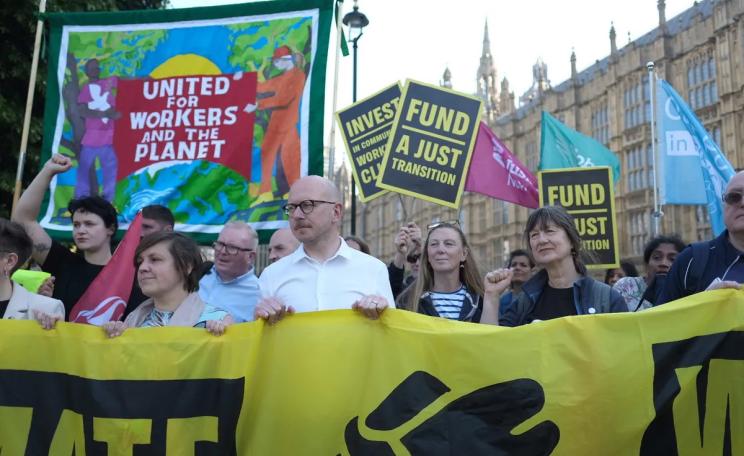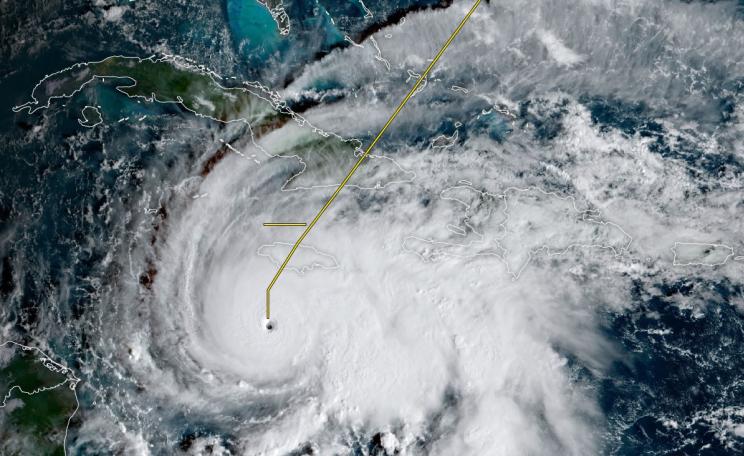We are pleased that the BMJ listened to us and has now banned adverts for banks investing in fossil fuels.
The British Medical Journal (BMJ) has become the first major publication in the world to announce it will no longer accept advertisements from banks that fund fossil fuels.
As a result of the policy, advertising by several major UK high street banks, including Barclays, HSBC, NatWest, Santander and Lloyds, who all finance the fossil fuel industry, will not be permitted across the BMJ’s publications.
Dr Hilary Neve, a GP based in Plymouth, has long campaigned to stop Barclays ads being placed in the BMJ. They told The Ecologist: "So many organisations declare a climate emergency but then do not act in accordance with this.
Funder
"As doctors we see the devastating impact that our heating world has on people's health and know that banks like Barclays that fund fossil fuels are a big part of this. We are pleased that the BMJ listened to us and has now banned adverts for these banks. We hope many other organisations will follow their lead".
Veronica Wignall, from the campaign group Adfree Cities, said: “We welcome the BMJ’s principled step to prevent major banks like Barclays from health-washing their public image while they continue to funnel billions into the world’s worst polluters.
“Bans on advertising for fossil fuel companies are becoming commonplace, to remove misinformation and protect the environment and our health. By the same logic we need to see an end to advertising for the financial institutions that are bankrolling climate breakdown.”
The announcement builds on the publication’s decision in 2020 to exclude advertisements from fossil fuel companies, on the grounds that advertising such companies is incompatible with global health priorities.
The BMJ stated in its editorial: “We will now strengthen our advertising policy further, following criticisms from readers that we carried advertising in our weekly print edition for Barclays Bank, a major funder of the fossil fuel industry.
Finance
We are pleased that the BMJ listened to us and has now banned adverts for banks investing in fossil fuels.
"We are not banning advertising from all banks, but we will allow it only from banks that do not fund fossil fuel companies…We seek to lead by example and do what we ask of our readers. Climate commitments and pledges are important, but they are meaningless without action.”
This groundbreaking policy shift comes after pressure from The BMJ’s readership, after medics expressed concerns that providing advertising space for fossil fuel financiers is inconsistent with the BMJ's editorial policy and commitment to sustainability.
The Journal received backlash after a series of advertisements for Barclays, Europe’s biggest funder of fossil fuels, appeared in the BMJ print edition in February and March 2024. Barclays poured £181.142 billion into fossil fuels between 2016-2023, including more than £18.5 billion in 2023 alone.
The BMJ’s updated policy marks growing support from health professionals for an end to high-carbon advertising, echoing the crucial role of the health sector in the eventual ban on marketing for tobacco products.
In October 2024, the UK Faculty of Public Health published new guidance calling for restrictions on fossil fuel marketing, to protect health. Medics in the Netherlands, Australia and Canada are also campaigning for policies to end advertising by fossil fuel companies, fossil fuel financiers and other high-carbon sectors that are failing to decarbonise, such as aviation.
Focus now turns to The Lancet, The BMJ’s closest competitor. The 2024 edition of the renowned annual Lancet Countdown report revealed that the health threats of climate change have “reached record-breaking levels”. However, The Lancet has yet to rule out running advertisements from fossil fuel companies and the banks that finance them.
This Author
Brendan Montague is editor of The Ecologist.







